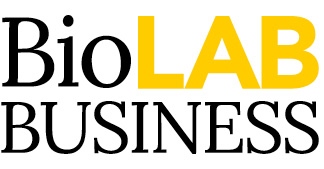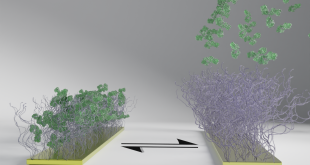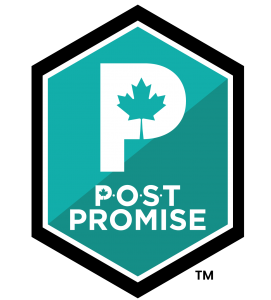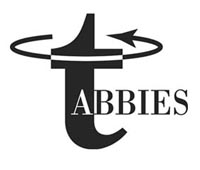In an evolving era of science and technology, humans can search up anything with an instant click and answer almost any question within seconds. But despite our many advancements, the scientific world is currently racing to develop a vaccine or cure for COVID-19. The coronavirus has instilled fear around the world, with a death toll that continues to rise with each passing day.
To combat this virus, Canadian scientists are helping pave the way to a cure for COVID-19.
Recently, researchers at the University of Texas at Austin and the U.S. National Institutes of Health used University of Toronto PhD candidate Ali Punjani’s cryo-SPARC software to develop the first 3D atomic-scale map of the coronavirus, pinpointing the ‘spike protein’, or the part that infects and attaches to the human cell. Punjani’s research in computer science led him to develop cryo-SPARC, a software model that enables scientists to develop 3D models of protein structures, allowing them to pinpoint exact places within the models. Cryo-SPARC is based on a Nobel-winning scientific technique known as cryo-EM. Cryo-EM uses electrons to shoot at molecular samples to obtain the high-resolution protein picture that scientists see. On its own, cryo-EM cannot piece together the images, which is why cryo-SPARC was invented; by using computer pictures and machines to combine 2D images and transform them into 3D models, it adds a vital feature for scientists. You can learn more about Punjani’s work at Structura Biotechnology.
Toronto-based company BlueDot, founded by Dr. Kamran Khan, specializes in helping hospitals to prepare and control the issues surrounding an outbreak. The company’s advanced artificial intelligence model was one of the first in the world to detect the coronavirus. With over 100 databases and countless algorithms, BlueDot is able to deliver critical information and advanced warnings about certain outbreaks and diseases. BlueDot’s complex system has allowed for health institutions to have insight into the severity of certain diseases and where these diseases will be most severe/concentrated. BlueDot was created by Dr. Khan in response to the SARS crisis that overwhelmed Ontario almost 20 years ago. The system creates an accurate portrait of the spread of infectious diseases.
While the COVID-19 virus has consumed the world’s mind, it is reassuring to see how quickly science is working together. The lessons we learn will help us through this pandemic, and the next. Contributed by Sumita Sahni.
The following stories were included in our most recent e-newsletter. Be sure to sign up!
Canadian biotech aims to start human trials of COVID-19 treatment in July
AbCellera, a Vancouver-based biotech firm, has teamed up with Eli Lilly to develop antibody therapeutics for the treatment and prevention of COVID-19. AbCellera was the first company in North America to receive a sample from a convalescent COVID patient, and within days identified over 500 human antibodies that are candidates for development as a treatment. The company screened more than 5 million immune cells, identifying those capable of delivering functional antibodies to neutralize SARS-COV-2, which helped the patient recover. The two companies hope to begin human trials of the treatment in July 2020.
Not just pets – hamsters and ferrets may point to a pan-coronavirus vaccine
Among several efforts in Canada to develop a pan-coronavirus vaccine – against multiple coronaviruses – a team of researchers at the Vaccine and Infectious Disease Organization – International Vaccine Centre is looking to rodents (mice, hamsters and ferrets) as a potential gateway to a COVID-19 vaccine. The team was awarded $1 million over two years to develop animal models and test vaccine candidates. To date, ferrets have been infected with the lab-grown virus, as the team advances on developing an animal model. The team also generated a vaccine which will be tested on the animals for efficacy and safety.
Smoking out COVID-19 with tobacco-based vaccine
Medicago, a Quebec-based biopharmaceutical company, has made significant progress toward producing an experimental plant-based vaccine for COVID-19. Funded by the Canadian government and Philip Morris International, Medicago is using a virus-like particle grown in Nicotiana Benthamiana, a close relative of the tobacco plant, to develop a potential vaccine against the coronavirus disease. Human trials are anticipated later this summer.
COVID-19 test results in 30 minutes coming in May
The first shipment of handheld devices and COVID-19 testing kits developed by Spartan Bioscience Inc. will be arriving at healthcare facilities in Alberta and Ontario this May, pending Health Canada approval. As part of a $9.5-million contract with Alberta Health Services, Spartan will deliver 250 devices and 100,000 testing kits. Ontario will be receiving a million test kits from the company. Spartan’s innovative handheld, rapid-testing device for COVID-19 can confirm test results for the virus in as little as 30 minutes.
LifeLabs contributes to national testing capacity
LifeLabs Medical Laboratory Services,Canada’s largest lab testing company, is adding much-needed testing capacity in coordination with government partners. The company is contributing more than 1,000 samples per day of testing capacity in Ontario, as well as 600 per day in B.C., by redeploying some of its non-essential lab work to COVID-19 testing,
Public Health Ontario releases report on PPE
Public Health Ontario released its latest report on personal protective equipment (PPE), based on more than two months of worldwide research. Since January, global clinical experience and updated scientific and epidemiological evidence for COVID-19 transmission shows that the virus is transmitted through droplets/contact and close direct contact with an infected person. The report provides recommendations on the use of PPE.
Some Canadian companies are pivoting production to offset shortage of medical face shields
- Cascades, a leader in eco-friendly recovery, packaging and hygiene solutions, will supply recycled plastic to make medical face shields together with the Tristan and Bauer companies, which will ensure the final assembly of the components.
- Ontario Power Generation has fired up its 3D printers to produce face shields to protect health-care workers.
- OCAD U faculty and technicians are working with Ryerson University’s FCAD Creative Technology Lab, the University Health Network Emergency administrators and colleagues at UC Davis in California to design and print protective face shields.
- Tempur Sealy Canada, the mattress producer, has repurposed part of its manufacturing to contribute to the supply of critically needed protective face shields for Ontario’s healthcare workers.
The Vale COVID-19 million-dollar challenge
Vale is joining the fight against coronavirus by launching the Vale COVID-19 Challenge, offering US$1 million to propel innovative COVID-19 solutions into the marketplace. The challenge is open in Canada and Brazil, with each selected solution eligible to receive up to US$200,000. Companies, startups, institutions, universities and professionals with innovative solutions to help our communities and lessen the impact of COVID-19 are invited to participate.
 BioLab Business Magazine Together, we reach farther into the Canadian Science community
BioLab Business Magazine Together, we reach farther into the Canadian Science community





